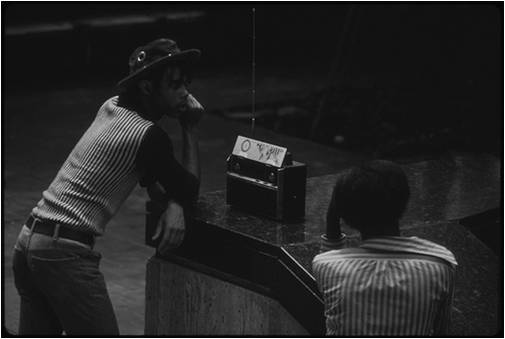 by Phil Jewitt
by Phil Jewitt
One of my early posts suggested that to be truly influential, you need to be effective, in both word and deed. I suggested that merely being popular doesn’t necessarily mean you are effective or influential.
I’d also suggest that to be constructively influential you need to have the respect of and respect for others and be trusted to say and do the right thing. On occasions, and as recently highlighted, this also means to not do or say things that don’t help. And we‘ve all done that and regretted it to some extent, haven’t we?
I recently read a great post by Helen Reynolds about the importance of influence. Right up my street. One of the things I took from this post was a comment “it’s not always about doing better things, it’s about doing things better”.
Recently I’ve been meeting people across my organisation and city to get an appreciation on their views on just that. Some of the topics discussed and projects involved are huge. I know there won’t be total unity on everything and I also know that some things will never be perfect first time – they just won’t, not that we shouldn’t try! But waiting til they are sometimes isn’t an option; life goes on.
To me, it’s about recognition of the opportunity to build on foundations of what collaborations produce, rather than dwelling on the ‘could have beens’. Could have beens are future opportunities to get hold of and deliver.
I think there’s a fine line between being overly vocal and raising a valid point – look what crying wolf did. I’ve blogged about this before and there was a related post also this week by welovelocalgov about balancing being critical. Managing that fine line can make the difference between turning people away or in engaging them further. Managing your ‘critical friend' or 'positive disruptor’ role is a difficult one to get right.
And I admire those who take on that role, both within my organisation and outside.
Delivering big projects across a city involves groups/organisations/residents/businessses working together, collaborating, negotiating, meeting, getting on, compromising, regrouping......agreeing on common ground and agreeing to disagree. All have their own interests and preferred outcomes. Success involves forming and maintaining relationships with those who may have alternate views. It involves creating a conversation but also being prepared to go where the conversation is; not necessarily interrupting but being prepared to be asked or to contribute but importantly being prepared to listen – to include the potential ‘could have beens’. It’s about being honest and open and most importantly managing expectations of what is possible and what isn’t and therefore being prepared to explain why something isn’t possible if it isn’t.
This can be a scary place to be, but actually a rewarding place to go to try and find positive dialogue and seek the alternate perspective.
So what interests me is; what is a ‘good enough consensus’? What elements bring about the optimum balance between ‘doing things better’ and ‘doing better things’? Possibly a bit deep – hence me asking for your views.
I perhaps think it’s probably a bit of both, but can’t put my finger on what or how exactly, but I know it’s about conversation and mutual respect of opinions.
If respect and trust isn’t there then it’s a bumpy ride, and none of us like that.
Phil Jewitt is senior communications manager, strategy and resource, at Leeds City Council
Sign up for our weekly email digest. You can do that here.
